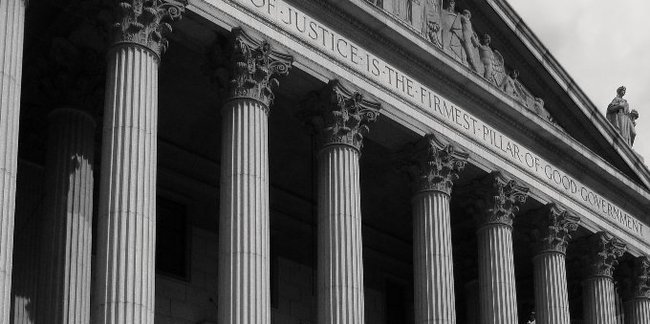Court of Appeal Affirms the Purchase Price of a Business That Was the Subject of an Option to Purchase in a Will
In its Reasons for Decision dated December 6, 2019, the Court of Appeal for Ontario deferred to the lower court’s directions with respect to the exercise of an option to purchase a business pursuant to the deceased’s last will.
Facts
Ellery Jay Muchmaker (“Muchmaker“) died in 2015. He was the owner of Master Auto Supply Co. Limited (“Master Auto“). In his will, Muchmaker gave Larry Weissman (“Weissman”), a long-term employee of Master Auto, an option to purchase Master Auto for the lesser of $1.75 million or “the price determined by multiplying the earnings of Master Auto (averaged over the last three fiscal years) by a factor of 5.5.”
The will also provided that the purchase price be delivered by way of a prosmissory note, with interest payable at 5% per annum; a gross annual payment to the estate of not less than $180,000, to be made in monthly installments; and the promissory note was to be secured by a general security agreement against Master Auto’s assets, as well as the registration of a collateral mortgage against Weissman’s residence.
Weismann attempted to exercise his option to purchase Master Auto. However, he could not reach an agreement with the estate trustee. The parties sought directions before the applications judge at first instance.
Application
The applications judge calculated a purchase price of $529,611 ($716,921 calculated using the formula under the will, minus $187,310, consisting of payments improperly made from Master Auto to the estate after Muchmaker’s death. The applications judge also found that Weismann was not required to provide collateral security as he did not own a residence.
Appeal
The estate trustee appealed on the basis that the applications judge erred in: (i) treating Weissman as a beneficiary instead of a favoured purchaser; (ii) dispensing with the requirement of a collateral mortgage; (iii) accepting Weismann’s evidence regarding the amount to be credited for Muchmaker’s salary for the purposes of calculating earnings; and (iv) deducting from the purchase price monies paid out of the estate.
The appeal was dismissed on all grounds:
(i) Beneficiary vs. Favoured Purchaser
The Court of Appeal did not accept the estate trustee’s argument that the applications judge had treated Weismann as a beneficiary; the judge’s reasons made no such suggestion, either explicitly or implicitly. Rather, he interpreted the will in a manner that gave effect to the testator’s intention, and there was nothing in the will establishing that the testator’s intention was to maximize value on the sale of Master Auto. The testator’s intention was for Weismann to purchase the company in a simple, straightforward transaction. Weissman was a potential purchaser only and not a beneficiary.
(ii) Collateral Security
When the will was executed, Weismann did not own a home. The will provided no direction about minimum equity or the assumed value of the security. Because the mortgage requirement was so vague that it provided no security to the estate, the applications judge did not err in dispensing with this requirement. It was within the applications judge’s discretion to provide directions to achieve a commercially reasonable transaction, which discretion is entitled to deference.
(iii) Salary
The salary attributed to Muchmaker impacted his earnings, which in turn impacted the purchase price of Master Auto. The applications judge concluded that the personal benefits paid by Master Auto on Muchmaker’s behalf should be normalized in the earnings formula. The applications judge rejected the estate trustee’s valuation in favour of the figure proposed by Weismann’s valuator. In particular, the estate trustee’s report did not explain its assessment of the salary figure. The applications judge’s decision to prefer the position of Weismann’s valuator over the estate trustee’s valuator was entitled to deference.
(iv) Support Payments
The estate trustee paid dependant’s support payments to Muchmaker’s common law spouse from Master Auto, in the amount of $187,310. He did so because the estate lacked equity to make these payments, which the applications judge held must be deducted from the purchase price. The applications judge did not err in doing so, as it was within his discretion to distinguish between the declaration of dividends and gratuitous payments to the common law spouse from Master Auto’s cash reserves.
Take Away
Both the applications judge and the Court of Appeal commented on the lack of detail in the will regarding what the testator intended to be a simple sale to a longstanding employee. Unfortunately, the lack of guidance in the will led to prolonged and costly litigation. When drafting provisions in a will relating to complicated assets such as businesses and options for their purchase, the drafting solicitor should provide clarity and detail, to avoid disputes such as those that arose in this case.


0 Comments